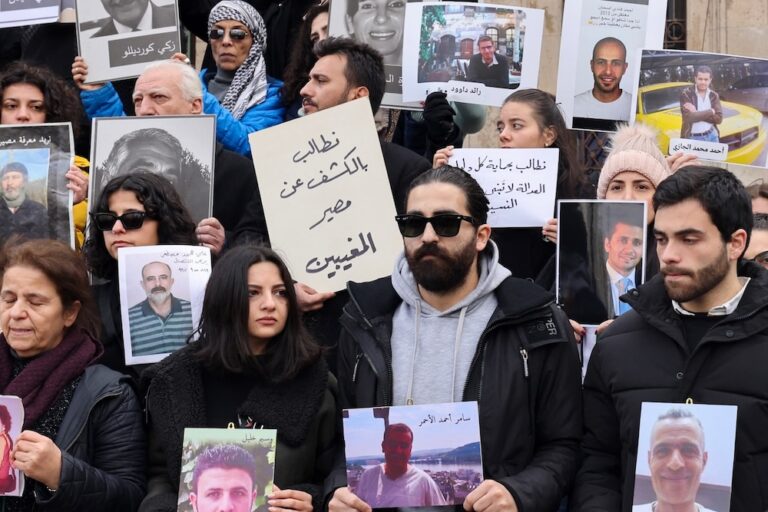In a separate incident in Lebanon, unidentified men poured gasoline on the broadcast truck belonging to the Beirut-based television station Al-Jadeed.
(CPJ/IFEX) – New York, April 27, 2011 – Responding to restrictions and attacks on its staff, Al-Jazeera has suspended its operations inside Syria indefinitely, the Qatar-based news network told the Committee to Protect Journalists today.
Damascus has subjected Syrian employees of Al-Jazeera to sustained pressure to resign from the widely viewed satellite news channel, the station’s Public Liberties and Human Rights Section told CPJ today. Authorities have also prevented the channel’s correspondents, among others, from entering the city of Daraa, where the Syrian uprising began on March 15. Authorities also told Al-Jazeera’s Syria-based staff “not to communicate with the station’s headquarters in Doha, and not to appear on air to present the news from the bureau, even if by telephone,” from Damascus, producer Hassan Elmogummer Taha told CPJ in an email.
For the past three days, unknown assailants pelted Al-Jazeera’s Damascus bureau with eggs and stones. Men in plainclothes have continued to harass and intimidate the bureau and its employees since then, Taha told CPJ. Al-Jazeera has suspended its Syria operations in order to “ensure the safety of all its employees,” the broadcaster said.
Syrian authorities recently informed Cal Perry, a correspondent for Al-Jazeera’s English-language channel, that his visa was expiring and that he would have to leave before April 23 or “face the full force of the law,” Perry wrote on Al-Jazeera’s website. Both he and cameraman Ben Mitchell left Syria on Saturday.
Perry and Mitchell are the latest in a string of international journalists who have been ejected from Syria since the beginning of the uprising in mid-March. CPJ research shows that at least five Reuters and two Associated Press journalists have been forced to leave the country in the past six weeks. Scores of local journalists and bloggers have been detained; many have since been released but others remain in custody.
“Syria believes that by harassing, expelling, and arresting journalists it can prevent the world from seeing the civil unrest gripping the country,” said CPJ Middle East and North Africa Program Coordinator Mohamed Abdel Dayem. “This strategy has already failed in Egypt, Tunisia, and Yemen. The government in Damascus must immediately stop harassing and threatening all journalists and allow them to work freely.”
In a separate incident in Lebanon, unidentified men poured gasoline on the broadcast truck belonging to the Beirut-based television station Al-Jadeed, as its five member news crew was covering a demonstration in the north of the country in solidarity with the Syrian uprising on Friday, the station’s director of photography told local news outlets. The truck was not set on fire, and the crew managed to leave the scene unharmed.


